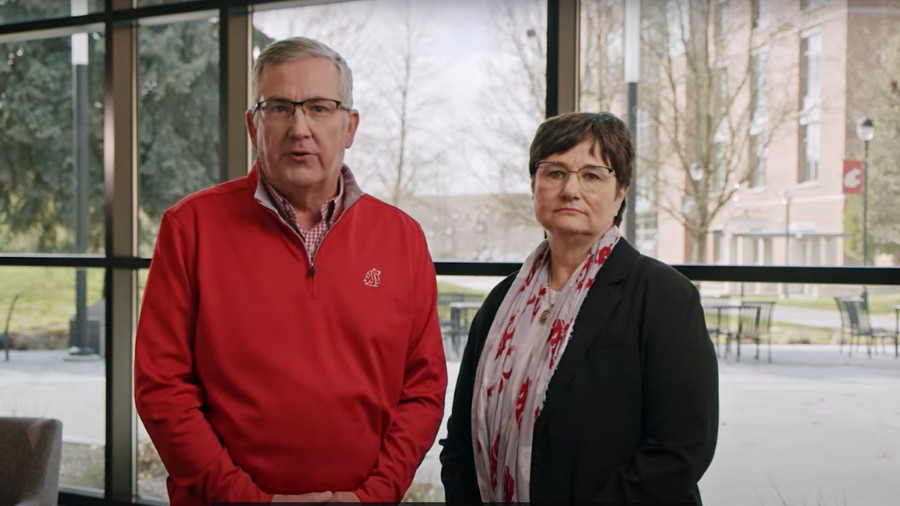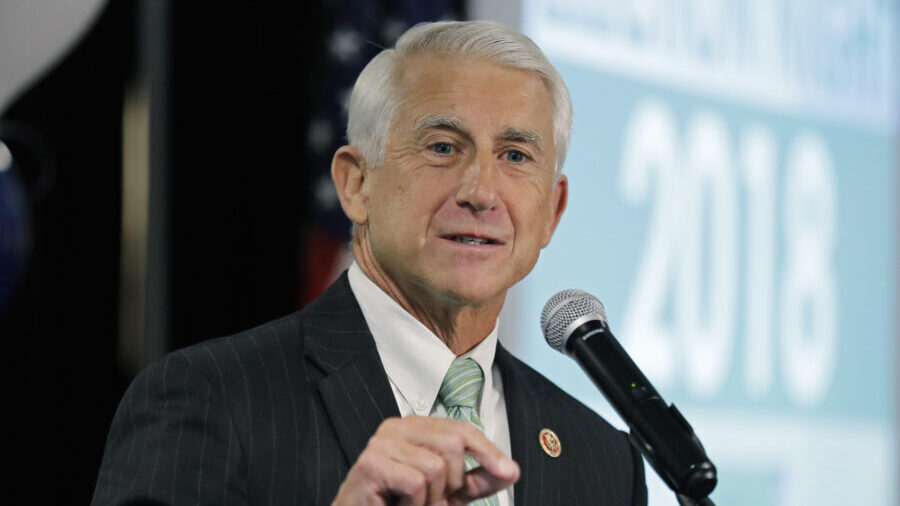King County Prosecutor’s Office looks to ‘peel back the veil’ after tumultuous year
Dec 21, 2021, 8:56 AM

The King County Courthouse in downtown Seattle. (Joe Mabel, Wikimedia Commons)
(Joe Mabel, Wikimedia Commons)
Nearly two years into the pandemic, we’ve all seen a lot of change, including some of the negative apparent side effects of the pandemic, from kids struggling with their education and mental health, to the loss of businesses and the loss of life. The pandemic has taken a toll on everything in one way or another, including public safety.
Dozens of violent criminals that don’t make headlines sentenced weekly in King County
With all of the rhetoric on that issue — combined with a genuine public need — the King County prosecutor’s office took action over this last year to give all of us the ability to cut through the noise.
“We’re the first prosecuting attorney’s office that we’re aware of to launch a public data dashboard that gives the public insight into our work, demanding increased transparency and accountability from government as they should be,” King County Prosecutor’s Office spokesperson Douglas Wagoner told KIRO Radio. “This is one step that we took to let folks know how we’re working to keep them safe and hold folks accountable every single day.”
Wagoner says the dashboard puts all the answers right at the fingertips of King County residents, as a way to “peel back the veil and let folks see for themselves” how cases are investigated and referred, and then later charged or declined. The website housing the dashboard also includes a video walking users through what can be a “very confusing” process for the average person to understand.
This comes while the King County Prosecutor’s Office worked to clear an historic backlog of cases that was exacerbated by a year of not having in-person trials due to the pandemic.
“This backlog is in no way unique to King County,” Wagoner clarified. “Every major jurisdiction in the country and minor ones as well are experiencing a massive historic backlog of court cases, which is super concerning and was one of the reasons we thought releasing the dashboard when we did was so important, because the first part of the dashboard shows folks the backlog, the number of open cases that are awaiting disposition.”
“And this past year in King County, we took steps to reduce that backlog,” he added.
That has eventually paid off in the form of more staff to help start closing some of those cases, which over the past several months, they’ve been able to make some headway on.
Hate crimes
The pandemic also saw increases in the number of hate crimes being reported, with a group of deputy prosecutors taking it upon themselves to form an outreach team.
“That was something that they did voluntarily — it’s not an official part of their work, but they got together, saw that hate crimes were up in our community, and that it was really important,” Wagoner explained.
In total, King County filed 53 hate crime charges in 2021. That was a process helped along by the outreach team’s work with the community and law enforcement.
“I’m so proud that our team got out there proactively talking to community groups and talking to law enforcement, to help increase the number of people that are aware and feel comfortable, and feel like they have the community connections in place to be able to report a hate crime and get the accountability they’re looking for,” Wagoner said.
Changes to three-strikes sentencing
Another major milestone for the prosecutor’s office was following through on a major change to the state’s three strikes law passed by the Legislature.
“We had a banner year for justice reform when it comes to resentencing people that are serving a three strike sentence in Washington state,” Wagoner described.
That came in the form of Senate Bill 5164, which requires prosecutors across the state to resentence individuals serving a three strikes live sentence due to a second-degree robbery charge. The change came about given the fact that second-degree robbery is the lowest on the list of potential three-strike sentences, and was proving to be a racially disproportionate charge.
In King County alone, there were around 20 people serving a three-strikes life sentence stemming from second-degree robbery, all of whom were awaiting resentencing following the passage of SB 5164. Now, the prosecutor’s office has policies in place to ensure those people can transition back into freedom successfully after years in prison.
Juvenile justice and diversionary programs
The King County Prosecutor’s Office also made significant progress on its juvenile justice reform.
“For the third year in a row, we diverted more juvenile cases than we filed through the court system,” Wagoner said. “We’ve been emphasizing innovative practice, restorative justice, therapeutic approaches in the juvenile justice space for years now, and it’s really paying off as a result of our efforts and others in King County.”
The county has now reached an “historic low” with 22 kids in secure detention, down from 205 in 2000.
King County Executive unveils roadmap for ending juvenile detention
But not everyone agrees with that “no youth jail” philosophy, and want to know what metrics there are to show them that this method actually works to keep young people out of trouble and the public safe.
To that end, Wagoner cites a study from 2014, which showed that young people moving through the county’s Choose 180 diversionary program were less likely to commit another crime than those who moved through the traditional court and detention system.
“The choice is not either jail or nothing — these are restorative forms of accountability,” Wagoner said. “It’s a different type of accountability that doesn’t rely on incarcerating our kids.”
“They’re not 100% bulletproof,” he added. “But I would also say that people get out of jail all the time and go on to commit other crimes. I just think, especially when it comes to investing in our young people and their future, shrinking the number of kids to the lowest number that’s humanly possible who are incarcerated is in our best interest, and it’s in the best interest of our kids.”
Dealing with dangerous criminals
One of the more unfortunate milestones to make the list comes in from a specialized unit that deals with the most dangerous criminals.
The prosecutor’s office has a unit called the Most Dangerous Offenders Project, operating on-call 24 hours a day responding to homicide cases. In 2021, they responded to 135 calls, leading to 62 murder and manslaughter charges.
“There’s a unit called the most dangerous offenders project, they are on call 24 hours a day responding to homicides and attempted attempted homicides. Just highlighting their work. They responded to 135 calls this year when they went directly to crime scenes, which is a huge, unfortunate number of violence in our community. As a result, we filed 62 murder and manslaughter charges.”
This came amid a year where gun violence soared to record levels according to shots fired data from the county. To address that, the prosecutor’s office worked with the county council on prevention and intervention community partnerships, while using Choose 180 “to leverage the gun violence data analysis that we do in our office to prioritize community engagement with folks who are most at risk of firearm violence.”
Drug diversion, fentanyl, and street racing
The office saw a lot of success with another diversion program too, aimed at providing substance abuse treatment to those who needed it most.
“Every single month in King County, we celebrated a new class of King County Drug Diversion Court graduates, who are eligible for this diversion option based on their substance use and the nature of the crime that they committed,” Wagoner detailed. “By going through this really rigorous, almost year-long program, they’re able to get their charges expunged, but more more importantly, they’re able to get the substance use treatment they need so they don’t continue to commit crimes fueled by drug addiction.”
The prosecutor’s office has prioritized the fight against a record number of fentanyl-related overdoses as well, having implemented what Wagoner described as a “novel,” yet useful strategy.
“We charged fentanyl dealers … with the somewhat novel charge of controlled substance homicide, which is when we can connect the drug dealer to individuals who actually died from overdoses,” he explained.
Wagner says they also boosted their efforts cracking down on street racing crimes, thanks to a regional task force formed in May of 2021. That task force led to the arrest and charging of an individual who had organized multiple racing events, one of which resulted in the death of two young women.
The road ahead
Beyond all of that, the prosecutor’s office is always busy with day-to-day work.
“Every single day, our office files roughly 25 felony cases,” Wagoner noted. “These are really the highest level crimes, the most serious and extreme crimes that we see in King County. When we share this list publicly, folks will be able to see the daily charging rundowns that we do periodically, so that folks can really see and experience our work for themselves.”
Looking ahead to 2022, you can expect much more as the prosecutor’s office looks to focus on a victim-centered approach, with a push for victims bill of rights in Olympia. They also still have a significant number of backlog cases to get through in a process prosecutor Sandberg expects to take years.
On top of all of that, the King County Prosecutor’s Office will also be taking on the first Washington law enforcement officer to be charged with murder under I-940 to trial, when Auburn police officer Jeff Nelson goes on trial for the murder of Jesse Sarey. A status hearing for that case is expected in January of 2022, with the trial itself set for the following month.













